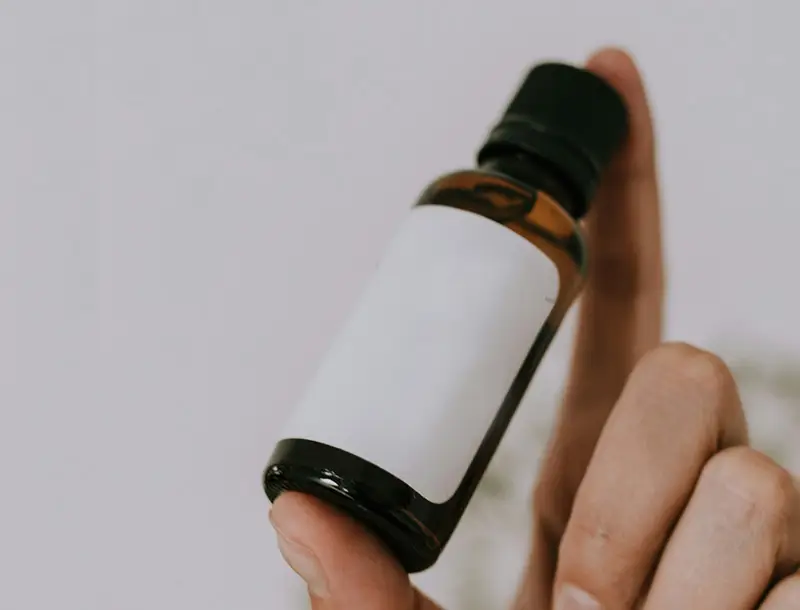THC products in Australia come in all shapes and sizes. They are known to have potentially beneficial therapeutic results when treating a range of medical conditions. Products may vary from oils, edibles, vaporisers, and more. When choosing a THC product, discuss options thoroughly with your doctor to find a medicine that suits your lifestyle needs and treatment plan.
What types of THC products are available in Australia?
There is a range of THC products available in Australia, such as oils, vaporisers, topical, and edible products. Some have been approved by the Therapeutic Goods Administration (TGA), while others are unregistered. Unregistered THC products aren’t necessarily unsafe or ineffective, but your doctor will need to seek TGA approval before prescribing them to you.

THC oil
THC oil is a medicinal cannabis product created by suspending THC and other cannabinoids in a carrier oil. Carrier oils help the body absorb cannabinoids more effectively by dissolving the molecules. These oils could be anything from medium-chain triglyceride oil to olive or avocado oil. THC oil products are most commonly taken sublingually (placed under the tongue). However, oils may be inhaled with a vaporisor if advised by a medical practitioner.
Help is at Hand
Get free information and assistance quickly by filling out the contact form below.
THC vaporisers
THC vaporisers, or vapes, turn concentrated THC into a vapour that can be inhaled. This reduces some of the harmful effects of smoking cannabis, such as damage to the respiratory system. Vape pen-type vaporisers consist of the pen-like body, the atomiser, and the cartridge. The atomiser heats the THC oil, which is inhaled once it evaporates. This allows THC to enter your lungs and be absorbed into your bloodstream. After that, it can travel quickly to other organs like your brain. It is important to note the difference between smoking and inhaling vaporised cannabis. Vapes don’t actually burn THC, they only heat it. Burning cannabis, which happens if you smoke it, releases dangerous carcinogens that could cause damage to your lungs. Inhaling THC products through vapes is far safer and potentially delivers faster therapeutic relief.
THC topical products
THC topicals are designed to be applied directly to the skin. This could include a large number of products, such as lotions, sprays, oils, or patches. Topical THC products bind to your cannabinoid receptors in your skin’s epidermal and sensory nerves. This produces a localised effect, but the exact benefits depend on the ingredients of the topical and its cannabinoid content. Topical THC products may not produce the same psychoactive effect as other products. This is because THC typically needs to enter the bloodstream to have an impact on your cognitive function. However, everyone’s endocannabinoid system is unique, so you may experience the psychoactive effect even with topical application.
THC edible products
Edible THC products work by being absorbed through the digestive system. These tend to be in the form of tablets, wafers capsules and tinctures containing THC oil. One benefit of edible THC products is that they offer precise dosage control to patients. However, it’s worth noting that they take a longer amount of time to produce their therapeutic effects than other product types once ingested.

What are different THC products used for?
There are various ways that THC products can potentially provide benefits to patients. However it’s important to note that they should be used to aid someone within the larger context of their medical treatment plan. Before receiving a prescription for medicinal THC, your doctor will assess your medical history, along with your current health condition, to find the most suitable THC product for you. THC products differ slightly from CBD-only products because they interact differently with your endocannabinoid system, producing a ‘high’ effect. For this reason, patients being treated with medicinal THC may experience symptoms such as memory loss or dizziness, which may impact their ability to drive or work. In Australia, it is illegal to drive with any amount of THC in your system, and many workplaces also prohibit the use of THC during the work day. If this poses an issue to you, discuss options with your doctor so they can find a cannabis product that fits with your lifestyle requirements.
How much do different THC product types cost?
The cost of THC products varies widely depending on the type and dosage. Edibles come in a range of prices influenced by factors like brand, ingredient quality, and potency. Capsules and tinctures, designed for precise dosage control, may be priced differently depending on the concentration of cannabinoids. The price may be affected by your health insurance, too. Some insurers offer coverage for medical cannabis in their extras, but they usually don’t advertise this, so it could be useful to confirm with your insurer to see what coverage you’ll receive for this type of treatment. Little Green Pharma is partnered with health insurer HIF to help keep medicinal cannabis costs low. If you’re a HIF member with Pharmacy included in your extras, you could be eligible for a rebate on your THC treatments.
The legal specifics of THC medical cannabis vary based on many different aspects. We break it all down for you on this page.
THC Legality in AustraliaWe unpack the differences between CBD and THC medical cannabis products. Find out which is best suited to you.
CBD vs THCLearn about what effects to expect when taking THC products.
THC EffectsLearn about THC and how you can utilise it as an Australian resident.
THC in AustraliaContact Us For Free Assistance
"*" indicates required fields